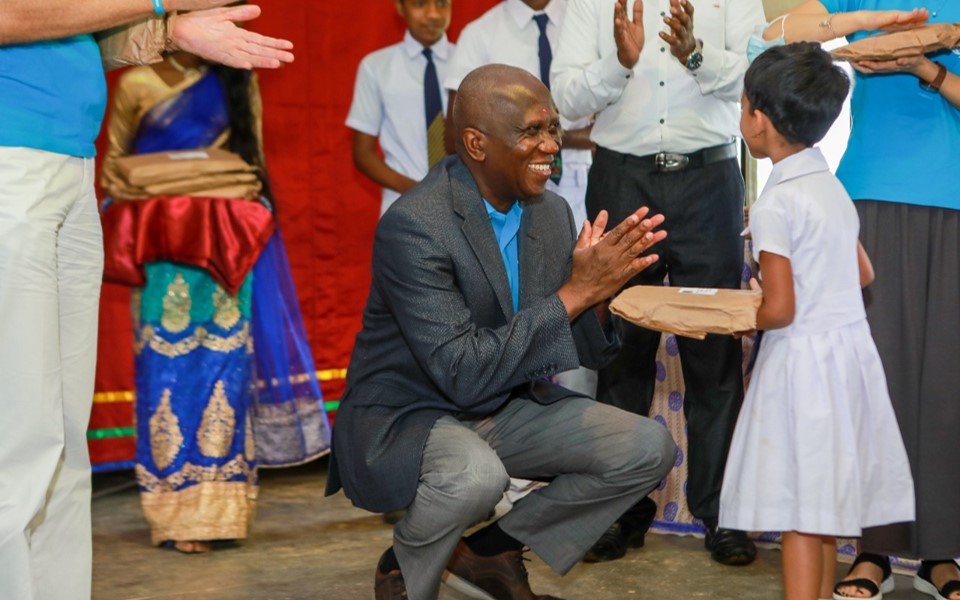 The United Nations (UN) has noted an increase in abuse, exploitation and violence against children in Sri Lanka as a result of the economic crisis.
The United Nations (UN) has noted an increase in abuse, exploitation and violence against children in Sri Lanka as a result of the economic crisis.
George Laryea-Adjei, the UNICEF Regional Director for South Asia, told reporters that as the economic crisis continues to rattle Sri Lanka, it is the poorest, most vulnerable girls and boys who are paying the steepest price.
He told reporters that Sri Lanka, a country normally known for its rapid economic growth and booming tourism, is experiencing its worst economic crisis since independence in 1948.
“Families are skipping regular meals as staple foods become unaffordable. Children are going to bed hungry, unsure of where their next meal will come from – in a country which already had South Asia’s second highest rate of severe acute malnutrition,” George Laryea-Adjei told reporters in Colombo.
He said that almost half of children in Sri Lanka already require some form of emergency assistance.
“The education of 4.8 million children, already severely hampered by two years of interrupted learning, is at risk as school attendance continues to be jeopardized. Children education is being hindered by the current crisis in many ways—children no longer get the warm and nutritious meal that they used to have before the crisis, they lack basic stationery, and their teachers struggle with transportation,” he said.
He also said that more reports are already emerging of increase in abuse, exploitation and violence against children due to the mounting economic pressure.
“There are already over 10,000 children in institutional care in Sri Lanka, mainly as a result of poverty. Such institutions are not the best place for a child to grow up in, as they lack the bond of a family. Unfortunately, the current crisis is pushing more and more families to take their children to these institutions as they cannot afford to provide for them, including feeding,” he added.
The UN official warned that if the current trend continues, hard-earned progress for children in Sri Lanka is at risk of being reversed and in some cases, erased permanently.
“UNICEF has been in Sri Lanka for over 50 years. With the support of partners, we are distributing education supplies, providing meals to pre-school children and badly needed cash transfers to pregnant and breastfeeding mothers. But as the crisis persists, much more is needed,” he said.
George Laryea-Adjei said that children need to be placed squarely at the heart of the solution as the country works to resolve the crisis. (Colombo Gazette)


Post a Comment